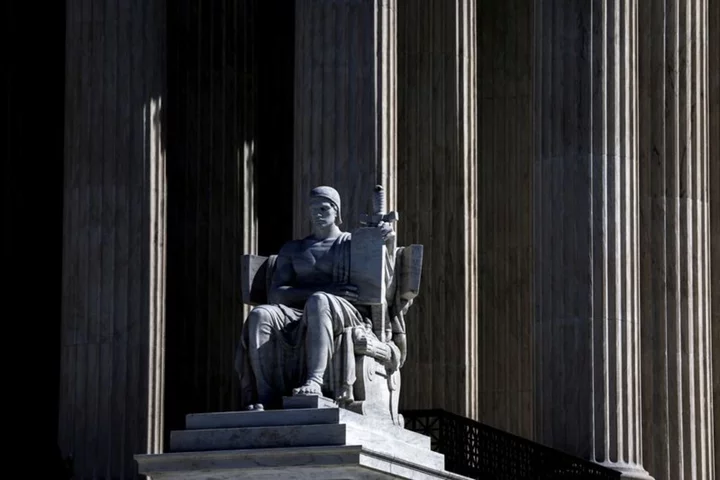By John Kruzel and Andrew Chung
WASHINGTON The U.S. Supreme Court is set on Tuesday to explore free speech rights in the digital age in cases from California and Michigan involving whether public officials may legally block others on social media, a function often used on these platforms to stifle critics.
Lower courts reached different conclusions in the two cases, reflecting the legal uncertainty over whether such social media activity is bound by the U.S. Constitution's First Amendment limits on the government's ability to restrict speech.
The Supreme Court is tasked with deciding whether the public officials engaged in a "state action" in blocking critics from social media accounts or were merely acting in their personal capacity. The First Amendment constrains government actors but not private individuals.
The first case involves two public school board trustees from Poway, California who appealed a lower court's ruling in favor of parents who sued them after being blocked from the personal accounts of the officials on X, called Twitter at the time, and Facebook, which is owned by Meta Platforms.
The second case involves a Michigan man's appeal after a lower court rejected his lawsuit challenging a Port Huron city official who blocked him on Facebook.
President Joe Biden's administration has sided with the officials in both cases. Free speech advocacy groups urged the justices to back the plaintiffs. The Supreme Court previously confronted the issue in 2021 in litigation over former President Donald Trump's effort to block critics on Twitter, but failed to decide the matter by deeming the case moot after he left office.
The justices also are due to decide other important cases involving speech on social media during their current nine-month term. One involves a challenge to Republican-backed state laws limiting the ability of social media platforms to remove or moderate content deemed objectionable or misinformation. Another involves a bid to prevent Biden's administration from encouraging such content moderation.
The California case to be argued on Tuesday involves Michelle O'Connor-Ratcliff and T.J. Zane, elected trustees of the Poway Unified School District. They blocked Christopher and Kimberly Garnier, the parents of three students at district schools, after the couple made hundreds of critical posts on issues including race and school finances.
Zane and O'Connor-Ratcliff both had public Facebook pages identifying them as government officials. The parents sued O'Connor-Ratcliff and Zane, claiming their free speech rights under the First Amendment were violated.
A federal judge in California sided with the parents and the San Francisco-based 9th U.S. Circuit Court of Appeals agreed, ruling that Zane and O'Connor-Ratcliff had presented their social media accounts as "channels of communication with the public" about school board business.
"When state actors enter that virtual world and invoke their government status to create a forum for such expression," the 9th Circuit wrote, "the First Amendment enters with them."
In the Michigan case, Port Huron resident Kevin Lindke sued after City Manager James Freed blocked him from his public Facebook page following critical posts related to the COVID-19 pandemic. Lindke accused Freed of violating his First Amendment rights. Freed's account also was a public Facebook page identifying him as a public figure.
A federal judge ruled in favor of Freed in 2021 and the Cincinnati-based 6th U.S. Circuit Court of Appeals last year agreed. The 6th Circuit found that Freed's blocking of Lindke did not constitute an official act.
(Reporting by John Kruzel and Andrew Chung in New York; Editing by Will Dunham)

